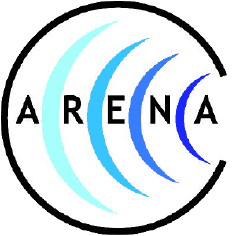Orateurs
Larissa Paul
(RWTH Aachen)
Mathieu Ribordy
(EPFL Lausanne)
Thomas Meures
(RWTH Aachen)
Description
We present the research activities for the feasibility of a large-scale acoustic detector for the detection of GZK neutrinos. Once this flux characterized, insights into cosmological source evolution, source spectra and composition at injection from the partial recovery of the degraded information carried by the ultra high energy cosmic rays can be gained.
In this presentation the activities for acoustic sensor development and calibration in the Aachen Acoustic Laboratory (AAL) and at EPFL, Lausanne, are discussed.
The AAL is a facility for acoustic sensor R&D and calibration in water and ice, as well as a systematic study of the thermo-acoustic effect. It consists of a 3m^3 cylindrical tank inside a cooling container which can achieve temperatures down to -25°C. The tank has a freeze control unit which can produce a large volume of bubble-free clear ice. Inside the tank, 18 piezo-based sender/sensor-pairs are mounted on an aluminum frame on three levels embedded in the ice volume and serve as reference. Thermo acoustic signals are induced by short pulses from a Nd:YAG laser mounted on top of the container.
The AAL sensors are calibrated absolutely by means of the reciprocity method and can be used for calibration of other acoustic devices as well as detailed systematic studies of the thermo-acoustic effect. First calibrations of AAL and SPATS sensors are presented.
Multi-channel digital sensors developed at EPFL reach a self noise level of about 3 mPa and pointing capabilites of a few degrees. The steel housing and digital communication over large distance make them suitable for deep deployment. The technology, the sensitivity and the pointing performances of these sensors will be reported and future consequent opportunities discussed.
